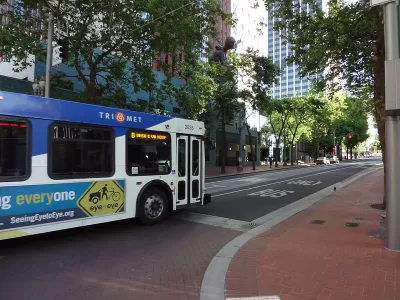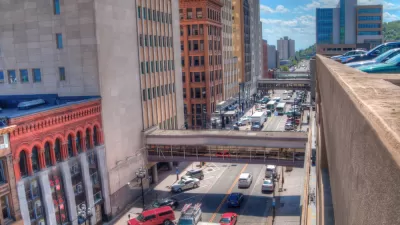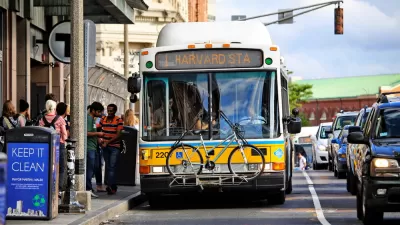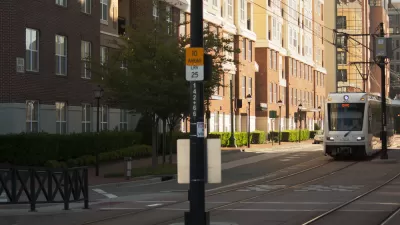Portland is redesigning its bus system to respond to the changing patterns of the post-pandemic world—with twin goals of increasing ridership and improving equity.

TriMet launched redesigned bus service in SW Portland on August 27, the first phase of the ongoing “Forward Together” service redesign.
“Forward Together is focused on equity and will make it easier for more people to connect with opportunities throughout the region,” according to an article published by Mass Transit magazine. “It moves some service from areas with low ridership and higher incomes to those where there are more people with lower incomes, who rely on transit to make important daily connections such as getting to work, school, health care and other services.”
“In the first bulk delivery of improvements and adjustments, TriMet is expanding its Frequent Service network and making it easier and more convenient to ride, with buses arriving more often at more times and on more days,” according to the article, which includes a lot more specifics for the plan.
TriMet touted Forward Together as one of its responses to an unprecedented driver shortage—a common issue in transit agencies around the country in the wake of the pandemic. But an article by Jarrett Walker (Walker’s firm consulted on the project with TriMet and is based in Portland) on the Human Transit blog notes that by the time the plan is fully implemented, TriMet will be operating 10 percent more service than in 2019.
According to Walker, the goal of more equitable service was pursued coequal with increased ridership. “The plan includes a major expansion of the Frequent Network in high demand areas, and new local routes in underserved suburban areas with large low-income populations,” according to Walker. “Where TriMet was running services that are justified neither by ridership nor by equity, the plan reduces or even eliminates those services.”
FULL STORY: TriMet implementing first Forward Together service changes starting Aug. 27

Alabama: Trump Terminates Settlements for Black Communities Harmed By Raw Sewage
Trump deemed the landmark civil rights agreement “illegal DEI and environmental justice policy.”

Planetizen Federal Action Tracker
A weekly monitor of how Trump’s orders and actions are impacting planners and planning in America.

The 120 Year Old Tiny Home Villages That Sheltered San Francisco’s Earthquake Refugees
More than a century ago, San Francisco mobilized to house thousands of residents displaced by the 1906 earthquake. Could their strategy offer a model for the present?

San Francisco Opens Park on Former Great Highway
The Sunset Dunes park’s grand opening attracted both fans and detractors.

Oregon Legislature to Consider Transit Funding Laws
One proposal would increase the state’s payroll tax by .08% to fund transit agencies and expand service.

Housing Vouchers as a Key Piece of Houston’s Housing Strategy
The Houston Housing Authority supports 19,000 households through the housing voucher program.
Urban Design for Planners 1: Software Tools
This six-course series explores essential urban design concepts using open source software and equips planners with the tools they need to participate fully in the urban design process.
Planning for Universal Design
Learn the tools for implementing Universal Design in planning regulations.
Clanton & Associates, Inc.
Jessamine County Fiscal Court
Institute for Housing and Urban Development Studies (IHS)
City of Grandview
Harvard GSD Executive Education
Toledo-Lucas County Plan Commissions
Salt Lake City
NYU Wagner Graduate School of Public Service





























